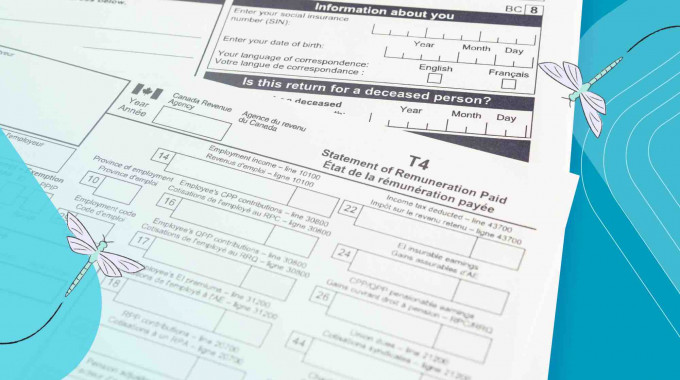What exactly is net worth? Well, your net worth is your total overall wealth, including assets and liabilities. This includes properties, vehicles and any other high-value assets that you own. Investment accounts like RRSPs and mutual funds are included in this, as well as other stocks that you may hold.
Net Worth by Age
When we are discussing the net worth of someone, we are essentially looking at their assets and liabilities. The total amount of what an individual’s assets are worth minus the liabilities (what they owe) is equal to their net worth. Because of this, people’s net worth varies through different stages of life.
Factors that can really impact your net worth include where you live, the current economic climate, whether you rent or own a home, your total mortgage balance, form of employment as well as many other factors. That being said, according to Statistics Canada, the average net worth in Canada among all ages is $738,2000 while the average Canadian median household net worth for Canadian families is $519,700.
The median net worth, also known as the median value, is the net worth that’s right in the middle. This means this number has an equal number of people with a net worth above and below the number given. Unlike the average, which takes everyone’s net worth and then calculates the average net worth that people have.
An example of a median net worth is $235,000. This would mean that an equal number of people in the area would have a net worth greater than and less than $235,000. Below we have the Canadian net worth data of median net worth separated into different age groups.
| Age Range | Median Net Worth |
| Under 35 | $159,100 |
| 35-44 | $409,300 |
| 45-54 | $675,800 |
| 55-64 | $873,400 |
| 64+ | $738,900 |
As we can see above, the highest net worth is of those between the ages of 55 and 64. This is likely because adults in this age group are still actively employed and have either just paid off their mortgage or are close to it, which can create the wealth gap. This is often when business owners see the most success with their services, as well, after years of hard work. The profits are then reflected in their net worth.
This is also likely a good part of the reason that those who are 64 and older have a net worth not that far behind those younger than them. While many people this age aren’t still actively employed, many have their mortgages paid off, which causes net worth growth and helps their net worth stack up to those who are younger.
What isn’t considered in these numbers are lone-parent families, the economic families from which these numbers come, and what part of Canada these numbers are seen. There are so many varying numbers that the median value just shows you where the center of the line is, and that most Canadians sit on either side of it. If you aren’t sure where your net worth sits, one way to find out is to check out a net worth calculator. Most financial institutions will have these on their website.

What is Considered a Good Net Worth in Canada?
This is a common question, but it is actually a pretty difficult one to determine. A good net worth is really determined by the individual. It’s whatever makes you comfortable. It is important to distinguish that net worth doesn’t determine how much money you have in the bank.
You can have money in the bank account and that could be your net worth, or you could have investments and own a home which could also be your net worth. One you have access to immediately and can spend, the other you don’t. How you distribute your money and accumulate your net worth is ultimately up to you, but as long as you are comfortable in your financial situation and spending habits, that is what matters.
That being said, if you are looking for some guidance on a good net worth, a good start is to look at the average net worth per age. If you are close to or higher than the average, it is a good indication that you are on the right track. If you aren’t, that’s okay too.
You really just want to be certain that you have a positive net worth, meaning your total assets are worth more than your total liabilities. You can then decide if you are happy with where you are at or if you want to make some changes to increase your net worth, which in turn improves your overall financial health. A financial advisor can help you compare each strategy and deep dive into how to help you make your millions.
Net Worth and Being Wealthy
In order to be considered wealthy in Canada, you should have a net worth of at least $1 million. That being said, a lot of Canadians who are considered wealthy live a relatively normal life. Most of their net worth is in their primary residence, investments, retirement packages, or even a mix of the three. Those who are truly wealthy often have a net worth that is much higher than $1 million.
Keep in mind, though, that just because someone is considered wealthy and has a high net worth doesn’t necessarily mean that they are debt-free. It just means that their total property assets, as well as their other financial assets, equal more than $1 million, even once their liabilities are factored in.
| A top percentage of Canadians | Average Net Worth |
| 1% | $9,737,000 |
| 2% | $2,500,000 |
| 5% | $980,000 |
| 10% | $840,000 |
| 50% | $482,000 |
Average Number of Canadians with a High Net Worth
Believe it or not, there are more people than you think that have a high net worth in Canada. Around 764,033 Canadians have a net worth of at least $1 million and at least 91,823 of those have a net worth that sits between $5 million and $30 million. Around 10,395 Canadians have a net worth of around $30 million.
Although it is difficult to determine where these people live in Canada, it makes sense to assume that they live in areas where the housing prices are significantly higher. Especially if these homes were purchased before housing prices skyrocketed. For many, this significantly increased their overall net worth.
For example: In West Vancouver the average household worth is $4,536,269 whereas it is $1,869,495 in North Vancouver. You will also find similar differences in other provinces as well. Especially since housing prices are hugely impactful to net worth. That being said, we should still take a look at the averages per province, just keep in mind that this is a relative number.
Net Worth Per Province
Depending on where you are living in Canada, the median net worth varies. While on average, median net worth is separated into age groups, it is also decided by location. Keep in mind though, these are not telling you what your net worth should be. Many people in the same age groups and various locations have a net worth that is much higher or lower than the median and the average.
| Province | Median Net Worth |
| New Brunswick | $286,200 |
| PEI | $399,800 |
| Quebec | $371,000 |
| Newfoundland and Labrador | $333,500 |
| Nova Scotia | $354,600 |
| Manitoba | $386,300 |
| Alberta | $457,100 |
| Saskatchewan | $394,600 |
| BC | $773,500 |
| Ontario | $665,600 |
As you can see, Ontario seems to have the highest median net worth. This isn’t entirely surprising considering that Ontario is the province with the highest population in Canada. It also has some of the highest housing prices in Canada. BC also has some of the highest housing prices, so it is really no surprise that it has the second-highest median net worth.
Net Worth and Retirement
Another really common question is whether your net worth affects your retirement. In short, it depends on how your net worth is distributed, but having a high net worth isn’t going to negatively impact you. If most of your net worth is in your home, then likely the only way it would help you in retirement is to sell your home.
If it is mostly in RRSPs and Investments, then you shouldn’t have to sell your home if you own it, and just start living off of that as well as any other pensions or retirement savings that you may have. That being said, no matter what your net worth is, even if you have no assets, an employer-sponsored pension plan isn’t included in this calculation.
Many Canadians wonder how much they should have in their net worth when it comes to the time to retire. As mentioned above, there are retirement savings that aren’t included in this calculation. The average Canadian’s net worth when they hit retirement age is just over $500,000. Is this enough?
Can this amount actually be used when you retire? What about two million? In reality, either of these amounts could be enough depending on how the assets are distributed, how much is in retirement funds, and if you have an outside pension. The deciding factor is what your yearly expenses are, what age you are when you retire and how long you expect the money to last. Ultimately, what matters is what you have set aside for retirement, not your total net worth.
For example: Say your retirement fund holds $750,000. You no longer have a mortgage so you also have your house as an asset as needed for any reason. Your total yearly expenses come to around $40,000 per year. With these calculations, your retirement funds would last you 18 years and 8 months. However, if your yearly expenses are only $20,000 per year, this amount would last 37 years and 4 months.
As you can see, the rough amount needed to retire depends on your financial situation. That being said, the total net worth didn’t even apply in this scenario. The only financial aspects we took into consideration were yearly expenses and retirement savings.
This is because we assumed the house was being kept, and the market value of the home wasn’t being accessed. That is always something that can be tapped into with home equity loans or just downsizing to avoid worrying about paying the money back.st downsizing to avoid worrying about paying the money back.

Ways to Increase Your Net Worth
Is your net worth lower than the Canadian average, or you just are looking to increase it? Do not worry; there are plenty of ways to do that. The key to this, though, is understanding that substantial increases aren’t going to happen overnight. Increasing your overall net worth will take time, whether you input small or large financial changes.
Budgeting
A good way to start taking control over your financial health and to increase your net worth is to create a budget. Cutting back on things that aren’t needed or reducing expenses and putting money into investments or a savings account also increases your net worth.
Acquire Assets
One of the most common ways a person acquires assets is by purchasing a home. You can also acquire assets by purchasing stocks or shares. Keep in mind, you can also invest in more than one property. If you owe less than what the assets are worth, these contribute to your net worth as well. Owning properties can also improve your income by creating a passive income stream for you.
Live Below Your Means
One concept many people have trouble with is that just because you can afford something doesn’t mean that you should. Not only does this allow you to save more money, but if your financial situation ever changes for reasons beyond your control, then you don’t have to dramatically change your lifestyle. Living paycheck to paycheck can be stressful, so creating a safety net not only increases your net worth but also reduces your stress levels and prepares you for the future.
Reduce Your Debts
When it comes to net worth, debts are considered liabilities that reduce your net worth. In some cases, they can even cause you to have a negative net worth. Keeping up on these debts and paying them off is extremely beneficial to your net worth. This process can also take time, but even small amounts can make a huge difference.
For some people, the easiest way to pay off their debts is to consolidate everything into one monthly payment then put extra on that one payment when they have it available.. Others choose to start with the smallest amount and pay it off, then keep going from there. Whatever method you choose, reducing your liability is key when it comes to your net worth.
Income and Net Worth
When you’re determining your net worth, it’s important to remember that your income doesn’t dictate your net worth. Many lower-income households have a high net worth. While wealthy households also usually have a high net worth, most of the wealthiest households have a high income and a high net worth.
The reason that your income level doesn’t affect your net worth is that your net worth is driven largely by the assets and funds you have saved. For this reason, real estate’s role in your net worth is going to be much higher. This is the same with other forms of investing.
Overview
Your overall net worth has a lot more to do with your assets and investments than it does with what is in your bank account. As discussed, what is in your bank account is important but having high value assets have a much stronger effect on your net worth. However, the value of assets can fluctuate which means your net worth can fluctuate multiple times throughout your life.
The general consensus though, is that if the older you are, the higher your net worth is. Even with the yoyoing that happens to net worths, it still tends to yoyo in an upward pattern. This is why it is very difficult to increase your net worth quickly. It often happens in a gradual process throughout your life, which is why we can see net worth averages gradually increase throughout the age ranges.








